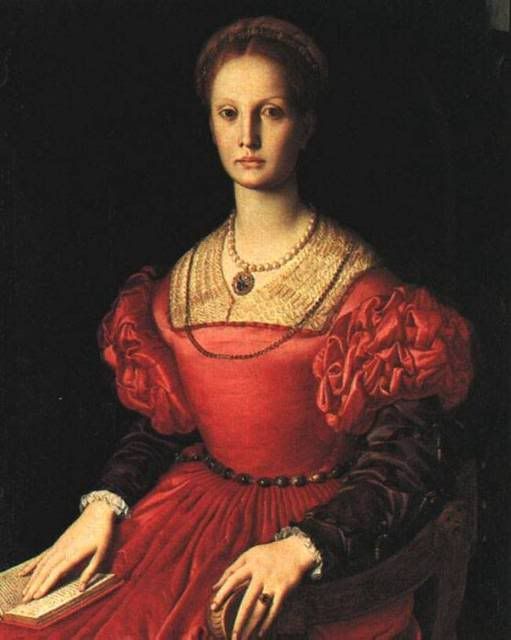(Dell Books, 1996)
"Andrei Codrescu has written a fascinating first novel based on the life of his real-life ancestor, Elizabeth Bathory, the legendary Blood Countess. Codrescu expertly weaves together two stories in this neo-gothic work: that of the 16th century Hungarian Countess Elizabeth Bathory, a beautiful and terrifying woman who bathes in the blood of virgin girls; and of her distant descendant, a contemporary journalist who must return to his native Hungary and come to terms with his bloody and disturbing past.
Drake Bathory-Kereshbur, a Hungarian-born journalist who has lived in the United States, returns to his native Hungary, only to be the target for recruitment among a patriotic group that wants to restore the glory - and the honor - of the Hungarian aristocracy. As a descendant of the Countess Elizabeth Bathory, he is heir to all that is wonderful and terrible about his country and his family's past. Codrescu brilliantly explores Drake's anguish, as he realizes the truth behind his gruesome family history. But more importantly, Codrescu also creates a convincing and historically accurate picture of a sadistic woman obsessed with youth, vigor, beauty, and blood...a woman with enough power to order the deaths of 650 virgins so that she could bathe in their blood.
The Blood Countess is a bizarre and compelling book about the horrors of the past, shown so effectively in the monstrous yet attractive personality of Elizabeth, and what pull these horrors have on those who live now."

***
"An extraordinary work of fiction ... The Blood Countess is hypnotic and lyrical, with both the concentrated poetic power of the great fairy tales and the playful expansiveness of postmodern fiction."
- San Francisco Chronicle Book Review
"Beautifully written and meticulously researched ... a book of high gothic drama"
- Entertainment Weekly
"The Blood Countess offers stylish entertainment that starts on Page One...Codrescu is nervously alert for recurrent patterns of evil and its handmaiden, absolute authority."
- R.Z. Sheppard, Time
"The most valuable work on political manipulation since Orwell's 1984 ...Codrescu peels layers of complexity from an important historical event to reveal the ghastly."
- George Czicsery, San Jose Mercury News
"As compellingly readable as it is thoughtfully intelligent...The Blood countess is that rarest of things, a new American novel of serious literary merit that is actually about something."
- San Jose Mercury News
"A brilliant work that reveals much about power and politics and obsession."
- St. Petersburg Times
"Codrescu's writing is rich...suspensful and chilling...a fascinating book."
- The Bellingham Herald
"A juicy and gushing story that overflows with horror and, surprisingly, humor...Codrescu brilliantly parallels Elizabeth's saga with the modern-day court testimony of her direct descendant, Drake Bathory-Kreshtur."
- Williamette Week
"Codrescu's hallucinatory reconstructions of Elixabeth's bloody deeds reads like the Brothers Grimm as revised by the Marquis de Sade...[The novel] serves disturbingly as a personal vision of the persistence of evil."
- The Boston Sunday Globe
From Booklist, April 15, 1995:
The fact that the author of this disturbing novel is a National Public Radio correspondent and a writer of considerable experience will create demand. How will readers react? That depends on whether they enjoy pages and pages of unrelenting cruelty and can overlook a big drawback in execution - that the two story lines, which are intended to link past and present, don't. Codrescu parallels a true story from the sixteenth century, about the bizarre Hungarian countess Elizabeth Bathory, who was reputed to have murdered 650 virgins in order to bathe in their blood, with the fictitious story of Hungarian American Drake Bathory-Kreshtur, a descendant of the countess, who fled Hungary in 1956 and was recently sent back to his homeland by the newspaper he works for to cover its emergence from behind the iron curtain. Drake relates his tale to a judge in new York, and it takes the form of a confession in which he reveals his involvement in a murder and admits to the dark-soul legacy of his horrible ancestor, from which he can't seem to escape. The past story is simply gruesome, the present-day story has the ring of filler to give this novel publishable length. People will be asking for the book, though, so order as demand dictates.
- Brad Hooper ©1995, American Library Association. All Rights Reserved.
From Publisher's Weekly:
Codrescu, journalist, poet, NPR commentator and filmmaker, has now written an ambitious first novel based on the fantastically grotesque character of a real-life Hungarian aristocrat. The novel tells two stories: the third-person tale of 16th-century Countess Elizabeth Bathory, a magisterial, beautiful and terrifying woman who bathes in the blood of virgin girls to preserve her youth; and the first-person narrative of her distant descendant, a journalist returning to his native Hungary to confront his feelings of guilt amid the sociopolitical turmoil of post-Soviet Central Europe. Told in alternating chapters or passages, the two stories merge violently near novel's end in a scene of feverish melodrama. Europe's social, political, intellectual and religious histories are skillfully interwoven with the more slippery threads of magic and myth in this intimate account of Countess Bathory's bizarre and sadistic obsessions, resulting in a neo-gothic tale as revealing as it is disarmingly horrific. Moving forward at a quick clip against a detailed period backdrop, the language graphically depicts erotic bodily functions and acts of physical torture while drawing a rich psychological portrait of a precocious and insatiably curious girl who evolves into a figure of monstrous complexity, at once insightful and manipulative, erudite yet pathologically superstitious, part psychotic and part seeker. Finally, Elizabeth becomes pure literary symbol, a ghostly figure "from whose ashes has risen the modern world and all its horrors." That is an enormous burden for any character to bear, and Codrescu is less persuasive in connecting his journalist's interpretations to his fable-like reconstruction of Elizabeth's life. Fortunately, the bulk of the narrative concerns the blood-soaked realm of the countess, conjuring a historically rooted nightmare that is hard to resist.

No comments:
Post a Comment